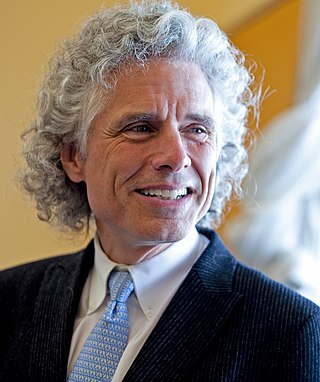
Cognitive science is the interdisciplinary, scientific study of the mind and its processes with input from linguistics, psychology, neuroscience, philosophy, computer science/artificial intelligence, and anthropology. It examines the nature, the tasks, and the functions of cognition. Cognitive scientists study intelligence and behavior, with a focus on how nervous systems represent, process, and transform information. Mental faculties of concern to cognitive scientists include language, perception, memory, attention, reasoning, and emotion; to understand these faculties, cognitive scientists borrow from fields such as linguistics, psychology, artificial intelligence, philosophy, neuroscience, and anthropology. The typical analysis of cognitive science spans many levels of organization, from learning and decision to logic and planning; from neural circuitry to modular brain organization. One of the fundamental concepts of cognitive science is that "thinking can best be understood in terms of representational structures in the mind and computational procedures that operate on those structures."

Steven Arthur Pinker is a Canadian-American cognitive psychologist, psycholinguist, popular science author, and public intellectual. He is an advocate of evolutionary psychology and the computational theory of mind.

Francisco Javier Varela García was a Chilean biologist, philosopher, cybernetician, and neuroscientist who, together with his mentor Humberto Maturana, is best known for introducing the concept of autopoiesis to biology, and for co-founding the Mind and Life Institute to promote dialog between science and Buddhism.

Owen Flanagan is the James B. Duke University Professor Emeritus of Philosophy and Professor of Neurobiology Emeritus at Duke University. Flanagan has done work in philosophy of mind, philosophy of psychology, philosophy of social science, ethics, contemporary ethical theory, moral psychology, as well as on cross-cultural philosophy.
Andy Clark, is a British philosopher who is Professor of Cognitive Philosophy at the University of Sussex. Prior to this, he was at professor of philosophy and Chair in Logic and Metaphysics at the University of Edinburgh in Scotland, director of the Cognitive Science Program at Indiana University in Bloomington, Indiana and previously taught at Washington University in St. Louis, Missouri. Clark is one of the founding members of the CONTACT collaborative research project whose aim is to investigate the role environment plays in shaping the nature of conscious experience. Clark's papers and books deal with the philosophy of mind and he is considered a leading scholar on the subject of mind extension. He has also written extensively on connectionism, robotics and the role and nature of mental representation.

Gerd Gigerenzer is a German psychologist who has studied the use of bounded rationality and heuristics in decision making. Gigerenzer is director emeritus of the Center for Adaptive Behavior and Cognition (ABC) at the Max Planck Institute for Human Development and director of the Harding Center for Risk Literacy, both in Berlin.

In epistemology, Innatism is the doctrine that the mind is born with ideas, knowledge, and beliefs. The opposing doctrine, that the mind is a tabula rasa at birth and all knowledge is gained from experience and the senses, is called Empiricism.
Alvin Ira Goldman is an American philosopher who is Emeritus Board of Governors Professor of Philosophy and Cognitive Science at Rutgers University in New Jersey and a leading figure in epistemology.
Neurophilosophy or philosophy of neuroscience is the interdisciplinary study of neuroscience and philosophy that explores the relevance of neuroscientific studies to the arguments traditionally categorized as philosophy of mind. The philosophy of neuroscience attempts to clarify neuroscientific methods and results using the conceptual rigor and methods of philosophy of science.
In the field of psychology, nativism is the view that certain skills or abilities are "native" or hard-wired into the brain at birth. This is in contrast to the "blank slate" or tabula rasa view, which states that the brain has inborn capabilities for learning from the environment but does not contain content such as innate beliefs. This factor contributes to the ongoing nature versus nurture dispute, one borne from the current difficulty of reverse engineering the subconscious operations of the brain, especially the human brain.
Jeffrey Locke Elman was an American psycholinguist and professor of cognitive science at the University of California, San Diego (UCSD). He specialized in the field of neural networks.
Zenon Walter Pylyshyn was a Canadian cognitive scientist and philosopher. He was a Canada Council Senior Fellow from 1963 to 1964.

Boundaries of the Mind (2004) is a thorough treatment of the role and conceptualization of the individual in psychology, by author Robert A. Wilson, a professor in the Department of Philosophy at the University of Alberta.

Gary Fred Marcus is an American psychologist, cognitive scientist, and author, known for his research on the intersection of cognitive psychology, neuroscience, and artificial intelligence (AI).
Kim Sterelny is an Australian philosopher and professor of philosophy in the Research School of Social Sciences at Australian National University and Victoria University of Wellington. He is the winner of several international prizes in the philosophy of science, and was previously editor of Biology and Philosophy. He is also a member of the Australian Academy of the Humanities. He is currently the First Vice President of the Division for Logic, Methodology and Philosophy of Science and Technology of the International Union of History and Philosophy of Science and Technology (2020–2023).
The East Pole–West Pole divide in the fields of cognitive psychology and cognitive neuroscience is an intellectual schism between researchers subscribing to the nativist and empiricist schools of thought. The term arose from the fact that much of the theory and research supporting nativism, modularity of mind, and computational theory of mind originated at several universities located on the East Coast, including Harvard University, the University of Michigan, Massachusetts Institute of Technology, and Tufts University. Conversely, much of the research and theory supporting empiricism, emergentism, and embodied cognition originated at several universities located on the West Coast, including the University of California, Berkeley, the Salk Institute, and, most notably, the University of California, San Diego. In reality, the divide is not so clear, with many universities and scholars on both coasts supporting each position, as well as more moderate positions in between the two extremes. The phrase was coined by Jerry Fodor at an MIT conference on cognition, at which he referred to another researcher as a "West Coast theorist," apparently unaware that the researcher worked at Yale University.
Evan Thompson is a professor of philosophy at the University of British Columbia. He writes about cognitive science, phenomenology, philosophy of mind, and cross-cultural philosophy, especially Buddhist philosophy in dialogue with Western philosophy of mind and cognitive science.

Gualtiero Piccinini is an Italian–American philosopher known for his work on the nature of mind and computation as well as on how to integrate psychology and neuroscience. He is Curators' Distinguished Professor in the Philosophy Department and Associate Director of the Center for Neurodynamics at the University of Missouri, St. Louis.
Neuroepistemology is an empirical approach to epistemology—the study of knowledge in a general, philosophical sense—which is informed by modern neuroscience, especially the study of the structure and operation of the brain involving neural networks and neuronal epistemology. Philosopher Patricia Churchland has written about the topic and, in her book Brain-Wise, characterised the problem as "how meat knows". Georg Northoff, in his Philosophy of the Brain, wrote that it "focuses on direct linkage between the brain on one hand and epistemic abilities and inabilities on the other."
Dualism in Indian philosophy refers to the belief held by certain schools of Indian philosophy that reality is fundamentally composed of two parts. This mainly takes the form of either mind-matter dualism in Buddhist philosophy or awareness-'nature' dualism in the Samkhya and Yoga schools of Hindu philosophy. These can be contrasted with mind-body dualism in Western philosophy of mind, but also have similarities with it.








